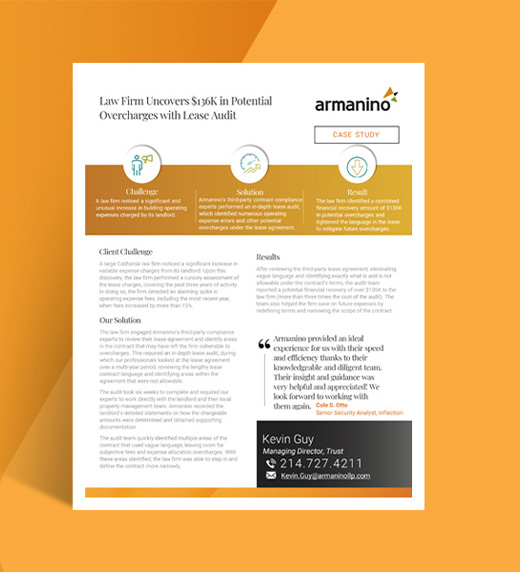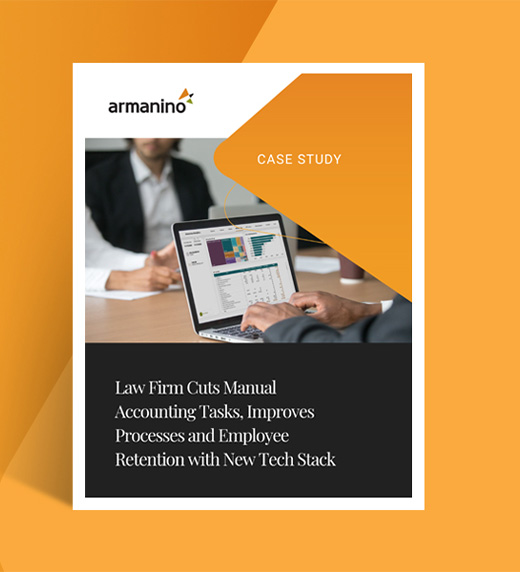
The State Bar of California recently implemented the Client Trust Account Protection Program (CTAPP), which is intended to improve oversight and regulation of client trust accounts. It includes new reporting requirements for attorneys.
In the past, attorneys received guidance for trust accounting via Rule 1.15 and the state bar’s trust accounting handbook, but additional oversight from the state bar was limited. Banks were required to report bank overdrafts to the state bar, and if the bar received client complaints, certain actions were taken to follow up and verify the client claims — but it was largely in the hands of the attorneys or law firms to self-regulate.
Going forward, all of this changes. The newly implemented CTAPP requires actively licensed attorneys to:
The state bar’s changes mean attorneys will be expected to adhere to more comprehensive reporting and compliance requirements. The changes raise a few key questions about how to ensure compliance for your entire firm and its attorneys.
You are still required to comply and complete your self-assessment. The state bar allows you to rely on the guidance of supervising attorneys to verify that the firm is in compliance.
This said, subordinate attorneys need to do their share by actively monitoring the trust accounts of the clients they manage, instilling healthy trust account habits and facilitating between the administrative team and clients to make sure all accounts comply with state bar guidelines.
Additionally, law firms should be clear in their employee and partner/shareholder agreements (and in their code of conduct) that all members of the firm must maintain trust account compliance and that everyone is held to the highest standards of ethical trust accounting.
A supervisory attorney is the one responsible for confirming that duties related to the trust accounts that are not being performed by attorneys personally are being properly discharged by others in the firm.
The individual best suited for this role needs to have enough knowledge of the firm’s client base to understand the types of transactions that are going through the trust account and their proper treatment and disposition upon receipt. The supervisory attorney should also have enough knowledge of accounting and accounting processes to be able to spot issues and take the necessary corrective measures before the issue becomes a prolonged problem. Lastly, they need to be a strong communicator with a cool head who can mobilize subordinate attorneys and administrative personnel alike to work as a team to keep the firm’s trust accounts in compliance.
Even with all these qualities, a supervising attorney should have access to education and outside experts to ensure they can adequately fulfill their duties.
While there are many risks associated with trust account compliance, there are a few key red flags that may indicate deeper issues, including:
If you identify any issue that indicates you may be out of compliance, we recommend you consult with your CPA, ethics attorney and/or other outside experts to help resolve it immediately. Allowing issues to linger only makes matters worse.
Many systems integrate client/billing modules with general ledger accounting systems, making the required three-way reconciliation of trust accounts easier to complete and understand. However, there are many systems that do not integrate and require a more complex reconciliation of activity between multiple systems. You will need to implement more internal processes and controls around these systems to ensure a clean match is consistently maintained. Lack of system integration is never an excuse for failure to perform three-way reconciliation.
Even though it may be complex, if the reconciliation cannot be presented simply, it’s likely not correct.
The state bar plans to provide training and education resources for maintaining trust accounts in compliance with the guidelines laid out in Rule 1.15. The bar also plans to commence random audits of trust accounts by independent CPAs (at the firm's expense).
Given the risk associated with a much more comprehensive reporting and compliance structure and the potential for audit, there should be a sense of urgency to get a sound control structure in place at your firm. This includes creating policies and procedures around trust accounting, checklists and/or handbooks to guide the finance and accounting teams in firm policy, and a comprehensive review and reporting structure to give supervising attorneys clear insight into the details of the firm's trust accounting procedures.
For questions or assistance meeting the new requirements, contact our legal industry experts.


